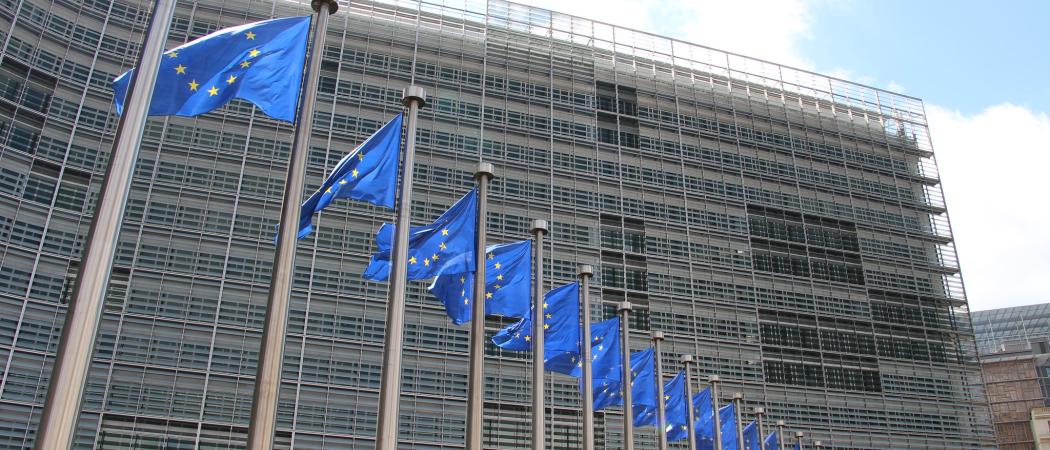As EU policymakers return from the summer break, we look at key decisions that will affect the R&I community in the months ahead

European Commission, Berlaymont building, Brussels, Belgium. Photo credits: Fred Romero / Flickr
After several crisis-filled years characterised by wars, pandemic and economic challenges, the recent European elections and subsequent summer break offer an opportunity to pause and take stock.
Now, as Europeans filter back to their desks, it’s a good time to look at what the research and innovation community can expect this autumn. The current geopolitical environment has placed R&I topics firmly in the mainstream debate, and that is not likely to change any time soon. Here are some of the stories we expect to be covering in the months ahead.
New commissioner
The first question is, Who will be the next commissioner for Innovation, Research, Culture, Education and Youth? Bulgaria’s Iliana Ivanova has held the post since 2023 after compatriot Mariya Gabriel left to return to national politics, but the country has yet to put forward a commissioner candidate for the upcoming mandate.
Commission President Ursula von der Leyen has given member states until 30 August to nominate candidates for the College of Commissioners, after which she will assign portfolios. Bulgaria is one of several countries currently dragging its feet.
Whoever is nominated as the new research commissioner will then be quizzed by MEPs in the Parliament committee for industry, research and energy ITRE, and culture and education committee, with hearings expected to take place in September or October.
Defence funding
For the first time, von der Leyen’s team will include a Commissioner for Defence. During her bid for re-election, she pledged to build a “veritable defence union”, and to present a white paper on the future of European defence.
The white paper, which should be published in the first 100 days of her new mandate, will identify investment needs. Research and innovation may not be at the top of the list, considering the urgent need to provide Ukraine with ammunition, but von der Leyen has promised to reinforce the European Defence Fund which supports R&D projects.
Competitiveness agenda
Speaking to MEPs ahead of her re-election vote, von der Leyen said prosperity and competitiveness would be her top priority. But perhaps the flagship policy of this new strategy, to propose a European competitiveness fund, will have to wait until the EU’s next long-term budget for 2028-2034. The Commission should publish its proposal for this budget by mid-2025.
However, there are several proposals in von der Leyen’s political guidelines that may be put forward before the end of the year and could have an R&D component. For example, she plans to propose a Clean Industrial Deal in her first 100 days to “help create lead markets in everything from clean steel to clean tech” and “speed up planning, tendering, and permitting”.
Further proposals are likely to be influenced by former Italian prime minister Mario Draghi’s highly-anticipated report on EU competitiveness. He was expected to submit his findings to the Commission over the summer, but publication was delayed and should now happen some time this autumn.
FP10 expert group
All eyes will be on the independent group set up to advise the Commission on the interim evaluation of Horizon Europe and its successor, Framework Programme 10. The group’s feedback should be influential in shaping the next framework programme.
The group of 15 experts, led by former Portuguese research minister Manuel Heitor, is meeting monthly between January and October 2024, and is due to deliver its report to the Commission on 16 October.
After taking the advice on board, the Commission should publish its interim evaluation of Horizon Europe early next year, and then present its proposal for FP10 mid-way through 2025.
2025 work programmes
The post-election transition will mean delays to the publication of the Horizon Europe work programmes for 2025. These are set to be adopted in March or April 2025. We already have some idea of what will feature because the Commission has published its strategic plan for the final years of Horizon Europe, including nine proposed new public-private partnerships.
We are waiting on the work programmes under Pillar II for large collaborative research projects, research infrastructures and the Widening programme for cohesion in research. For other parts of Horizon Europe, such as the European Research Council and the Marie Skłodowska-Curie Actions, the Commission has extended the current work programmes to cover 2025.
Research lobbies
As well as awaiting the conclusions of the Draghi report, the R&I community will be expecting progress towards implementing Enrico Letta’s recommendations to create a ‘fifth freedom’ of a single market dedicated to the free movement of research, innovation, knowledge and education.
Research lobbies expect the composition of the new Commission to set the tone.
“R&I has never been so central in the political guidelines of the Commission president before the start of a new European Commission,” said Kurt Deketelaere, secretary general of the League of European Research Universities. “Hopefully this will be reflected in the R&I portfolio and its holder.”
Deketelaere is hoping research, innovation and education will remain a standalone portfolio, rather than being integrated into a larger competitiveness, internal market or economy portfolio. That is the case in “a number of member states”, he noted, saying much will depend on who is picked for the role. “Let's hope we get someone with experience and expertise on or in Europe, research, innovation and education.”
Deketelaere also wants to see member states step up. “They can start with stopping the annual circus of opposing the annual Horizon Europe budget as proposed by the European Commission and supported by the European Parliament,” he said. The Council has proposed cutting €400 million from the Horizon budget for 2025.
Muriel Attané, secretary general of the European Association of Research and Technology Organisations, said she is looking forward to working with the new research commissioner in the coming months, including on preparations for FP10 and the next long-term budget, with competitiveness set to have a central role in the discussions.
“Luckily, about 70% of the current FP Horizon Europe budget thanks to its Pillar II is geared towards pan-EU collaborative R&D&I with key industrial partnerships,” she told Science|Business.
“We believe this will be the main asset the new commissioner will have in their pocket, to actually ensure a strong FP10 as well as avoid the FP budget being cannibalised by the announced new competitiveness fund and to avoid that we would be exchanging R&D&I grants for loans.
“We do not need a new Juncker Plan, which did not foster R&D&I,” she added, referencing the 2015 programme that used loan guarantees to secure financing for infrastructure and other projects that were otherwise too risky to invest in. There have been calls to replicate that plan to decarbonise Europe’s industry.





 A unique international forum for public research organisations and companies to connect their external engagement with strategic interests around their R&D system.
A unique international forum for public research organisations and companies to connect their external engagement with strategic interests around their R&D system.